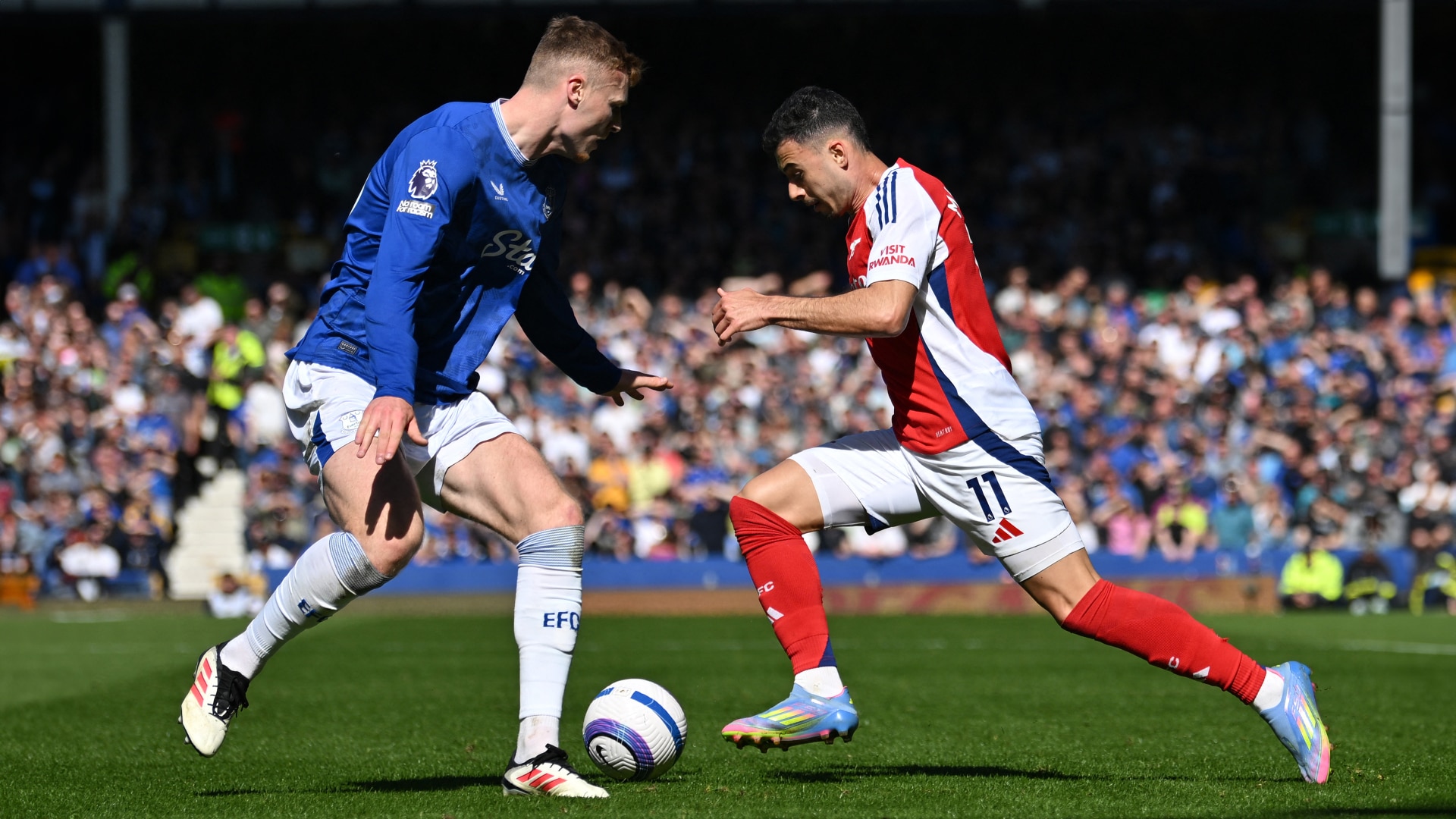Hello and welcome to the Premier Skills English podcast. This new series of Football English podcasts are based around the needs of football players and football fans and will present language you need to play the game, language you need to watch the game on TV and online and language you need to travel to the UK to see a match at a Premier League stadium.
Today, I am focusing on English for players and want to talk about some more advanced football English that you can use to talk about tactics. This language will be useful for players who want to understand tactical terminology and who want to be able to read and discuss match reports.
I was going to make one podcast about the language of tactics, but when I started reading more about tactics and tried writing descriptions of some different approaches, there was a lot of quite advanced football English. I spent some time looking through the talking tactics pages on PremierLeague.com, and ... well, the language is not too complicated, but there are lots of advanced phrases and specialist football uses that might make the texts a bit of a challenge.
As well as the talking tactics pages on the Premier League website, I had a look at match reports and some coaching blogs and I made a list of five approaches to tactics. I’ve already published a podcast on Total football, and I have four more approaches to tactics.
- Tiki-Taka
- Counter attacking
The high press
And
- Fluid formations
Today, I’m going to talk about Tiki-Taka and I’ll talk about the other approaches to tactics in the future.
Football phrase review
Before I get to the tactics, I want to quickly talk about last week’s football phrase and give you one more chance to guess.
Last week, the football phrase was to ******* * ******. This means to score using ... well, not using your feet. However, it’s a bit more involved than that. We use the verb ******* because this action changes a scoring opportunity into a goal. So it’s commonly used when a player scores this way by connecting with the ball delivered during a set piece.
It was a tricky one and I’ve not left the podcast up for long enough for anyone to get it ... yet. And because I have more podcasts to share, I’m not going to reveal the answer here. If you want to know the answer, you’ll have to visit the Premier League British Council website. As soon as anyone gets the right answer, I will confirm it in the comments section.
Now it’s time for me to get back to tactics.
Tactics
So the second approach to tactics I'm going to talk about is Tiki-Taka. I’ve prepared a description of the tactic and I have pulled out the interesting language. I’m not going to talk about the history of any of these tactics and which teams and managers invented and developed ... or maybe at some point in the future I’ll make a history of tactics podcast but for now you’ll just have to look that up yourself.
I’m going to read the description and then I’m going to talk about the language and then I’ll read the description again. After that, there will be a short language challenge and then there will be a new football phrase.
Tiki-Taka
Tiki-Taka is a possession-based style of football that is characterised by short, quick passes and constant off-the-ball movement. Teams that use this approach try to dominate the tempo of a match by keeping the ball, by maintaining control of the ball, often exceeding 60% possession, and slowly wearing down their opponents by being patient and careful during build-up. This tactic relies on technically gifted midfielders who can operate in tight spaces, keep possession under pressure, and link play effortlessly. A key feature is the use of a holding midfielder to keep the play in the centre or to anchor the play and provide balance, allowing more creative players the freedom to advance and start attacks. Full-backs also play an essential role by pushing high up the pitch, stretching the opposition and creating additional passing options, which opens up space in central areas. The overall effectiveness of Tiki-Taka relies on team cohesion, spatial awareness, and a collective commitment to constant movement and quick ball circulation.
Language focus
The challenging language from this description is:
- Possession
- Tempo
- Build up
- Technically gifted
- Link play
- A holding midfielder
- Team cohesion
- Circulation
Possession
Possession is all about which team has the ball. In football, it’s often seen as a good thing if your team keeps the ball for longer periods. Some teams aim to dominate possession by passing the ball around calmly and carefully, while others are happy to give it up and wait for a chance to win it back and counter-attack. So possession is simply about how much your team controls the ball during a match.
Tempo
Tempo means the speed of the game. If a team is playing at a high tempo, they’re moving the ball quickly, making fast runs, and trying to catch the opposition off guard. If they’re playing at a slower tempo, they might be trying to control the match or calm things down. Managers often talk about "controlling the tempo", which means choosing when to speed things up or slow things down depending on the situation. The same term is used in music to talk about how many beats-per-minute a piece of music is played at.
Build-up
Build-up is how a team moves the ball from defence to attack. Some teams like to play a slow build-up, where they pass the ball around at the back and wait for the right moment to go forwards. Others go for a quick build-up with long balls or fast transitions. The build-up phase is really important because it’s how the team creates space and prepares to make a chance. It’s all about what happens before the final pass or shot.
Technically gifted
If a player is described as technically gifted, it means they are really good at the basic technical skills of football. I described technical skills in the last podcast about Total Football. Technical skills include a player’s first touch, control, passing, and dribbling – the sort of things that make the game look easy. A technically gifted player might not be the fastest or strongest, but they’ll be calm on the ball and rarely make mistakes with their technique. It’s a big compliment in football.
Link play
Link play is about connecting different parts of the team, usually involving players who are good at short passes, quick touches, and movement. You often hear it used to describe strikers who drop deeper to link up with midfielders or wingers. So instead of just waiting for a chance to score, they help build the attack. Link play is important for keeping the ball moving and creating space for others.
A holding midfielder
A holding midfielder is the player who sits in front of the defenders and helps protect the back line. They usually don’t get forward too much. Their job is to break up attacks, win the ball back, and keep things simple with short passes. You’ll hear other terms like defensive midfielder or number 6, but they all refer to the same kind of player – someone who gives the team balance and stability in midfield.
Team cohesion
Team cohesion means how well the players work together as a unit. A team with strong cohesion will move together, defend together, and attack as one. It’s not just about tactics – it’s about trust, understanding, and communication on the pitch. Teams with good cohesion often look really well organised, and everyone seems to know what their teammates are going to do.
Circulation
Circulation in football refers to how the team moves the ball around, often across the pitch from side to side. It’s a way of stretching the opponents and trying to create space. When circulation is good, the ball moves quickly, players are always offering options, and the team keeps control. It might not look exciting at first, but it’s often the key to unlocking a stubborn defence.
OK. To talk about Tiki-taka, I have used and described:
- Possession
- Tempo
- Build up
- Technically gifted
- Link play
- A holding midfielder
- Team cohesion
- Circulation
Listen to the description of Tiki-taka again to hear this language in a football English context.
Tiki-Taka
Tiki-Taka is a possession-based style of football that is characterised by short, quick passes and constant off-the-ball movement. Teams that use this approach try to dominate the tempo of a match by keeping the ball, by maintaining control of the ball, often exceeding 60% possession, and slowly wearing down their opponents by being patient and careful during build-up. This tactic relies on technically gifted midfielders who can operate in tight spaces, keep possession under pressure, and link play effortlessly. A key feature is the use of a holding midfielder to keep the play in the centre or to anchor the play and provide balance, allowing more creative players the freedom to advance and start attacks. Full-backs also play an essential role by pushing high up the pitch, stretching the opposition and creating additional passing options, which opens up space in central areas. The overall effectiveness of Tiki-Taka relies on team cohesion, spatial awareness, and a collective commitment to constant movement and quick ball circulation.
Language challenge
Now it’s time for you to think about some of this language again. I have come up with seven sentences that use language from today’s podcast. I’m going to read you these sentences but I’m not going to say the language from the podcast so I want you to try to fill in the gaps with the words and phrases that I’ve been talking about.
Number 1. The striker’s clever _____________ helped bring the midfielders into the attack.
Number 2. The team’s strong _____________ was clear in the way they moved and defended as a unit.
Number 3. After winning back _____________, they passed the ball calmly around the defence.
Number 4. The midfielder is _____________ and rarely loses the ball under pressure.
Number 5. They raised the _____________ in the second half, moving the ball quicker and creating more chances.
Number 6. They worked on _____________ in training to improve passing between the lines.
Number 7. The manager encourages slow and careful _____________ instead of long balls forward.
There is an interactive activity on the page for this podcast on the Premier League British Council website that you can use to check to see if you’ve got the right answers.
Football phrase
And finally, it’s time for the football phrase.
Today’s football phrase is not a favourite among football fans, but part of the reality of football fortunes. This phrase is relevant today because on Sunday, Southampton made history when they suffered the earliest ********** in Premier League history and will have another seven matches to prepare for next season in the Championship.
If you can work it out, you can leave the answer in a comment on the page for this podcast on the Premier League British Council website.
And that’s all I have time for today. Before I finish, I just wanted to say that I hope you found this podcast useful, and I hope everyone stays fit and healthy and safe.
Bye for now and enjoy your football.












Hi jack,
The football phrase for this week is **********, it’s sad for Southampton fans but sometimes the such is life.